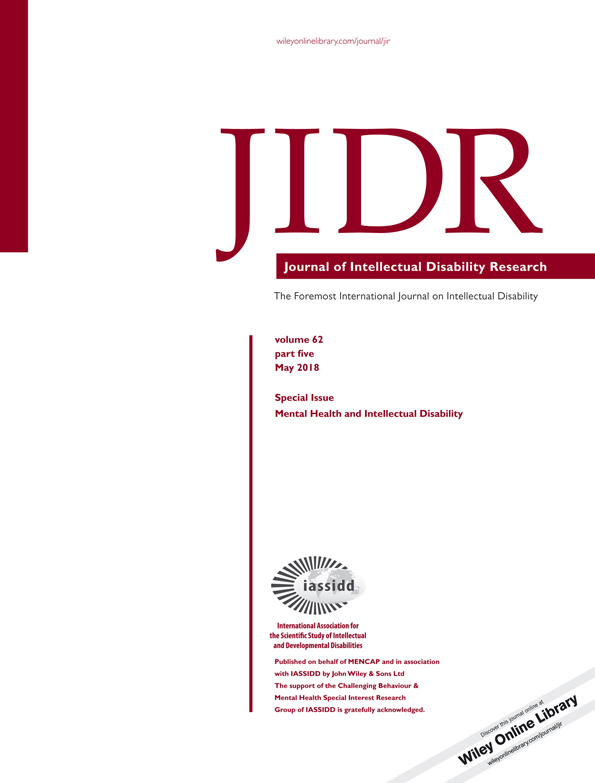General nutrition knowledge among carers at group homes for people with intellectual disability
Abstract
Background
Good nutrition knowledge among carers of people with intellectual disability (ID) living in group homes is essential as they have a primary role in food provision for residents. Research on the nutrition knowledge of carers is limited.
Method
This cross-sectional study assessed the level of general nutrition knowledge in a convenience sample of Australian carers (C) of people with ID and compared this to the general Australian community (CM). Nutrition knowledge was evaluated using the validated General Nutrition Knowledge Questionnaire. Total knowledge score as well as performance on instrument sub-sections (dietary guidelines, nutrient sources, healthy food choices and diet disease relationships) were assessed (expressed as %). Knowledge scores were adjusted for known confounders (age, sex, education level, BMI, living arrangement and English spoken at home) using generalised linear modelling.
Results
A total of 589 participants were recruited (C: n = 40; CM: n = 549). Age (C: 40.8 ± 12.1 year; CM: 37.8 ± 13.3 years; P = 0.145), sex distribution (C: 62.5%; CM: 67.2% female; P = 0.602) and English spoken at home (C: 82.5%; CM: 89.6%; P = 0.183) were similar between groups, but BMI (C: 28.5 ± 5.7 kgm−2; CM: 25.3 kgm−2; P = 0.002) was significantly lower and tertiary education (C: 52.5%; CM: 85.1%; P < 0.0005) significantly higher for CM. Total knowledge score (C: 56.6 ± 12.6%; CM: 67.2 ± 12.6%; P < 0.0005) and performance on all instrument sub-sections (P ≤ 0.004) were significantly lower for carers. This remained after confounder adjustment except for the knowledge of dietary guidelines sub-section (P = 0.116).
Conclusion
Limited carer nutrition knowledge may compromise their ability to plan and adapt meals to support a healthy and appropriate diet for people with ID in group homes.




